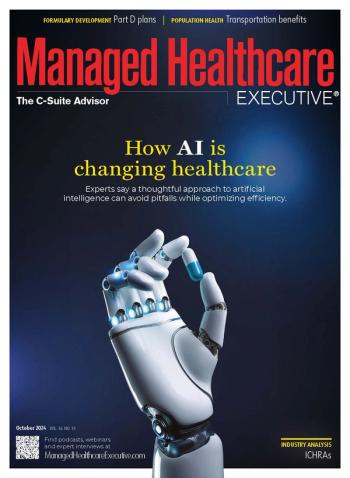
|Articles|July 1, 2006
Health plans apply scientific evidence to new technologies
There are times when technology is well proven and clearly beneficial in the effort to improve health outcomes such as length of life, quality of life and functional ability. There are other times when it is not as clear whether technology helps to achieve this objective.
Advertisement
Newsletter
Get the latest industry news, event updates, and more from Managed healthcare Executive.
Advertisement
Latest CME
Advertisement
Advertisement























